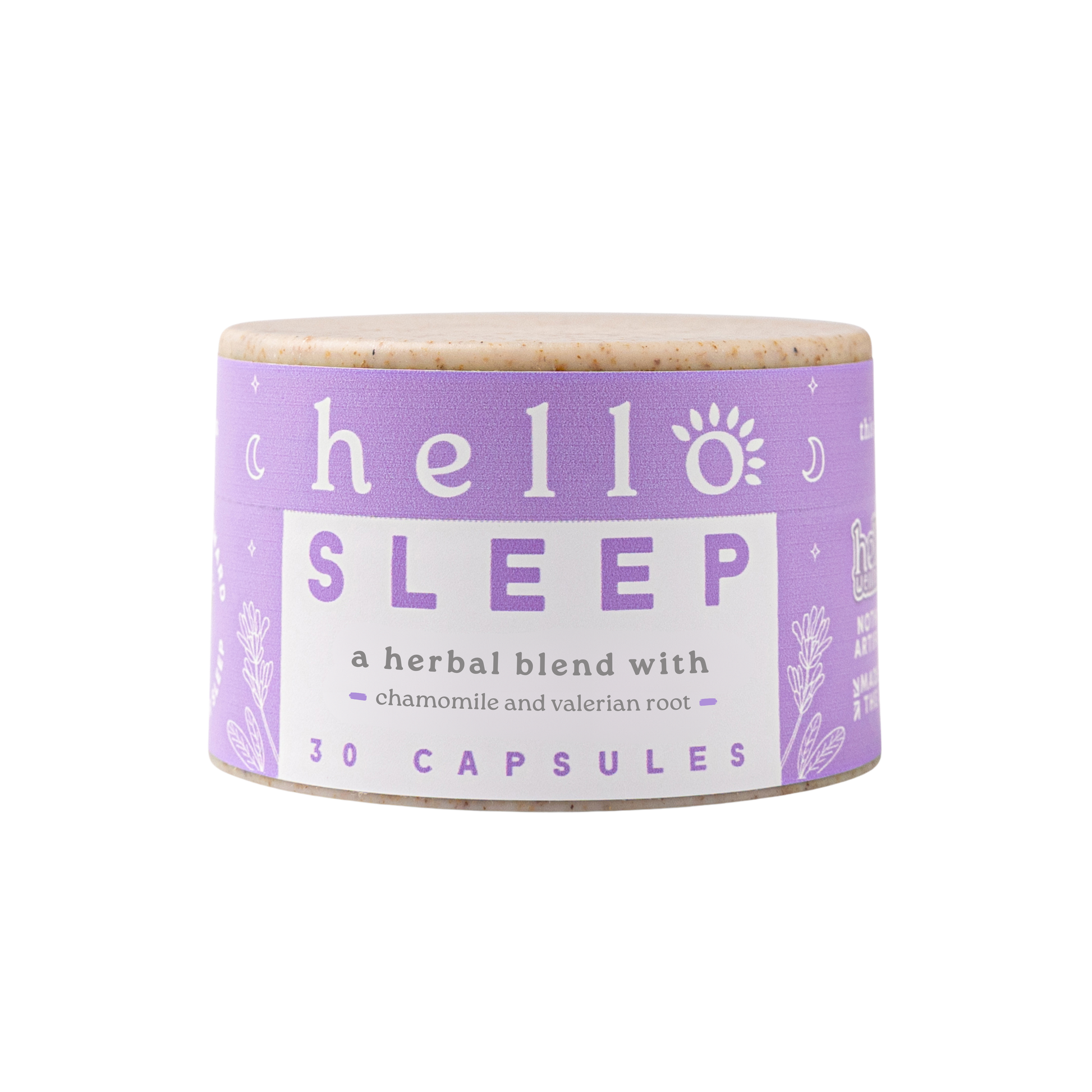Natural Remedies for Poor Sleep
Do you ever feel exhausted, even after a full night in bed? Like your mind just won’t switch off, no matter how tired your body feels? That restless, broken sleep can leave you feeling drained, foggy, and out of sync with life. Poor sleep is more than just an inconvenience—it’s a sign that something’s out of balance.
Sleep is essential for both physical and mental restoration. When it's disrupted night after night, it can impact your mood, memory, immune system, and overall well-being. Chronic sleep issues can even lead to more serious health concerns if left unaddressed.
At Hello Wellness, we specialise in expertly formulated herbal remedies designed to support deep, restful sleep. In this guide, we’ll explore what causes poor sleep and the most effective natural solutions to help you unwind, sleep soundly, and wake up feeling refreshed and restored.
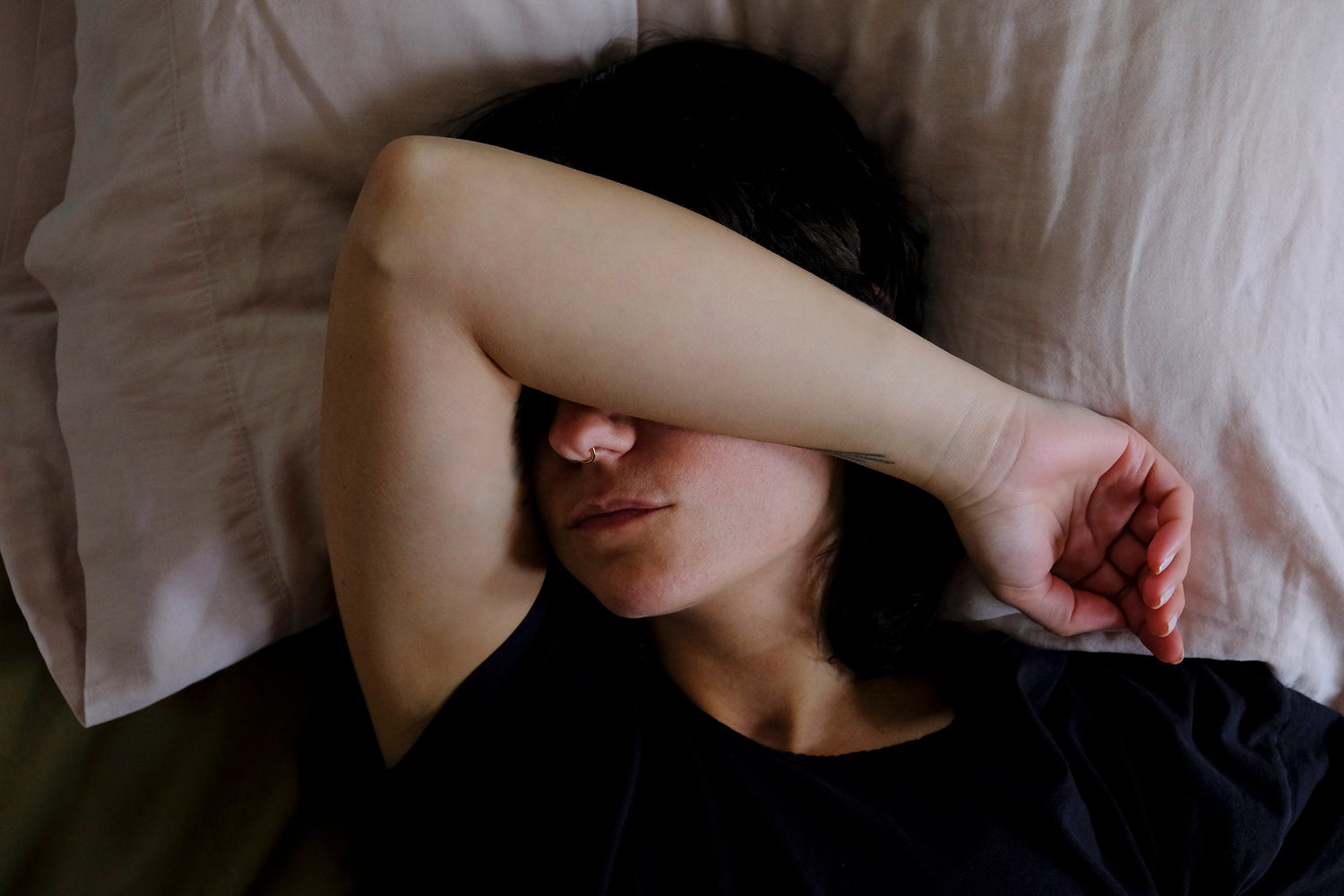
What is Poor Sleep?
Poor sleep can stem from a variety of factors, including stress, anxiety, irregular routines, screen time before bed, or underlying health issues. Lifestyle habits such as caffeine or alcohol use, shift work, and lack of physical activity can also disrupt your body’s natural sleep cycle.
The effects of poor sleep go beyond feeling tired. It can impair concentration, weaken the immune system, disrupt hormones, and contribute to mood swings, irritability, and low energy. Over time, chronic sleep deprivation can increase the risk of anxiety, depression, and long-term health problems.
Natural remedies like calming herbal blends, relaxation techniques, and lifestyle adjustments can help restore healthy sleep patterns—gently and effectively.
Common Causes of Poor Sleep
Understanding what contributes to poor sleep is the first step in overcoming it.
Here are some of the primary causes:
1. Stress & Anxiety
When the mind is racing with worries, it becomes difficult to relax and fall asleep. Stress triggers the release of cortisol, the body’s “alert” hormone, which can keep you awake or cause restless, broken sleep.
2. Irregular Sleep Schedule
Going to bed and waking up at different times each day disrupts your body’s internal clock. This inconsistency can confuse your natural sleep-wake cycle, making it harder to fall asleep or stay asleep.
3. Excessive Screen Time
Using phones, tablets, or TVs before bed exposes you to blue light, which interferes with melatonin production—the hormone that signals your body it’s time to sleep. This can delay sleep onset and reduce sleep quality.
4. Caffeine & Stimulants
Consuming caffeine or other stimulants late in the day can interfere with your ability to fall asleep. Even if you do drift off, these substances can reduce the depth of your sleep, leaving you feeling tired in the morning.
5. Poor Sleep Environment
A noisy, bright, or uncomfortable bedroom can prevent you from getting quality rest. Temperature, lighting, and even your mattress and pillow can all influence how easily you fall and stay asleep.
6. Hormonal Imbalances
Changes in hormones—such as during menstruation, menopause, or thyroid dysfunction—can disrupt sleep patterns. These imbalances may cause night sweats, restlessness, or difficulty staying asleep through the night.
7. Lack of Physical Activity
A sedentary lifestyle can make it harder to feel physically tired at the end of the day. Regular movement helps regulate your sleep-wake cycle and promotes deeper, more restorative sleep.
Signs Your Brain Needs Some Support
Constant Fatigue
Feeling tired during the day, even after a full night in bed, is a major indicator of poor sleep. You may wake up feeling unrefreshed or struggle to stay alert throughout the day.
Difficulty Concentrating
Poor sleep affects cognitive function, making it harder to focus, think clearly, or retain information. Tasks that usually feel easy may become frustrating or take longer to complete.
Mood Swings & Irritability
Sleep deprivation can make emotions feel more intense or harder to manage. You may feel more impatient, anxious, or easily upset without knowing why.
Falling Asleep During the Day
Nodding off during meetings, while reading, or watching TV is a clear sign your body isn’t getting enough quality rest at night and is trying to catch up.
Trouble Falling or Staying Asleep
Taking a long time to fall asleep, waking up frequently during the night, or rising too early are all signs of disrupted sleep patterns that affect rest and recovery.
Low Motivation or Energy
Lack of restful sleep can leave you feeling sluggish and unmotivated, even for things you usually enjoy. Everyday tasks may start to feel overwhelming or exhausting.
Increased Cravings or Poor Appetite Control
Sleep affects hunger hormones, and poor sleep can lead to increased cravings for sugar and processed foods, or make it harder to regulate appetite throughout the day.
Herbs for Poor Sleep
-

Oat Straw
Oat StrawOat straw, often referred to as Avena Sativa, has been used for centuries as a natural remedy to support brain function, boost energy, and promote overall well-being. Known for its ability to enhance cognitive performance, balance mood, and support nervous system health, this powerful herb is gaining recognition as a must-have for those looking to improve mental clarity and vitality.
Natural Remedies for Poor Sleep
The good news is that poor sleep is often reversible with lifestyle adjustments and targeted natural remedies. Here are some easy ways you can naturally support sleep cycle:
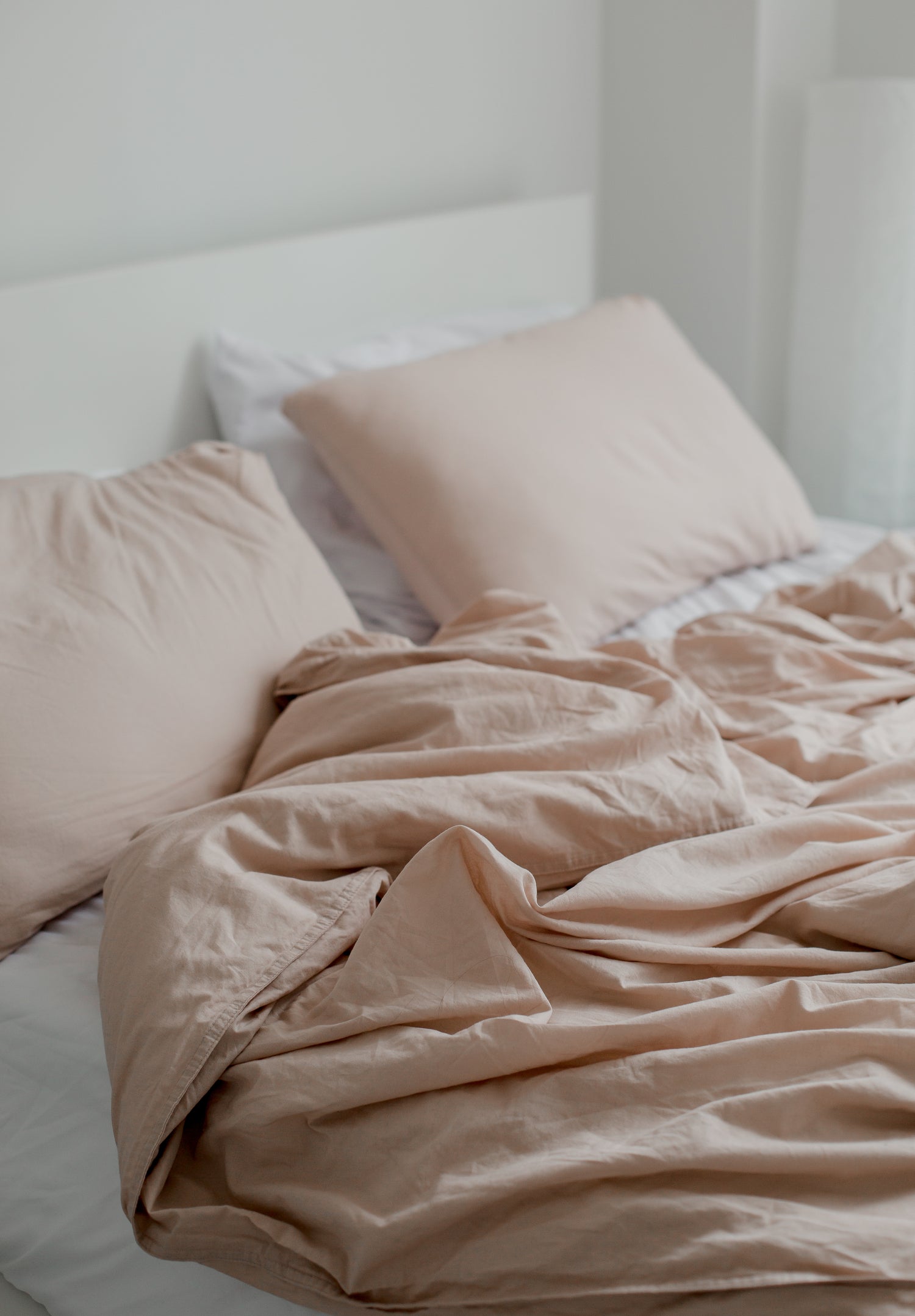
Establish a Consistent
Sleep Routine
Going to bed and waking up at the same time each day—even on weekends—helps regulate your circadian rhythm, the body’s internal clock. A consistent routine trains your body to expect sleep at a certain time, making it easier to fall asleep and wake up naturally.
Avoid shifting your schedule by more than 30 minutes. Create a calming pre-bed ritual, like reading or gentle stretching, to signal to your brain it’s time to wind down. Over time, this structure can dramatically improve sleep quality and help eliminate difficulty falling asleep or waking frequently during the night.

Limit Screen Time
Before Bed
Digital screens emit blue light, which interferes with melatonin production—a hormone that regulates sleep. Scrolling through your phone or watching TV right before bed keeps your brain stimulated, making it harder to fall asleep. Ideally, stop using screens at least 60 minutes before bedtime.
Instead, choose low-light activities like reading a book, journaling, or listening to calming music. If screen use is unavoidable, use blue light filters or “night mode” settings. Reducing screen time in the evening helps your brain transition into a restful state, promoting deeper and more restorative sleep.
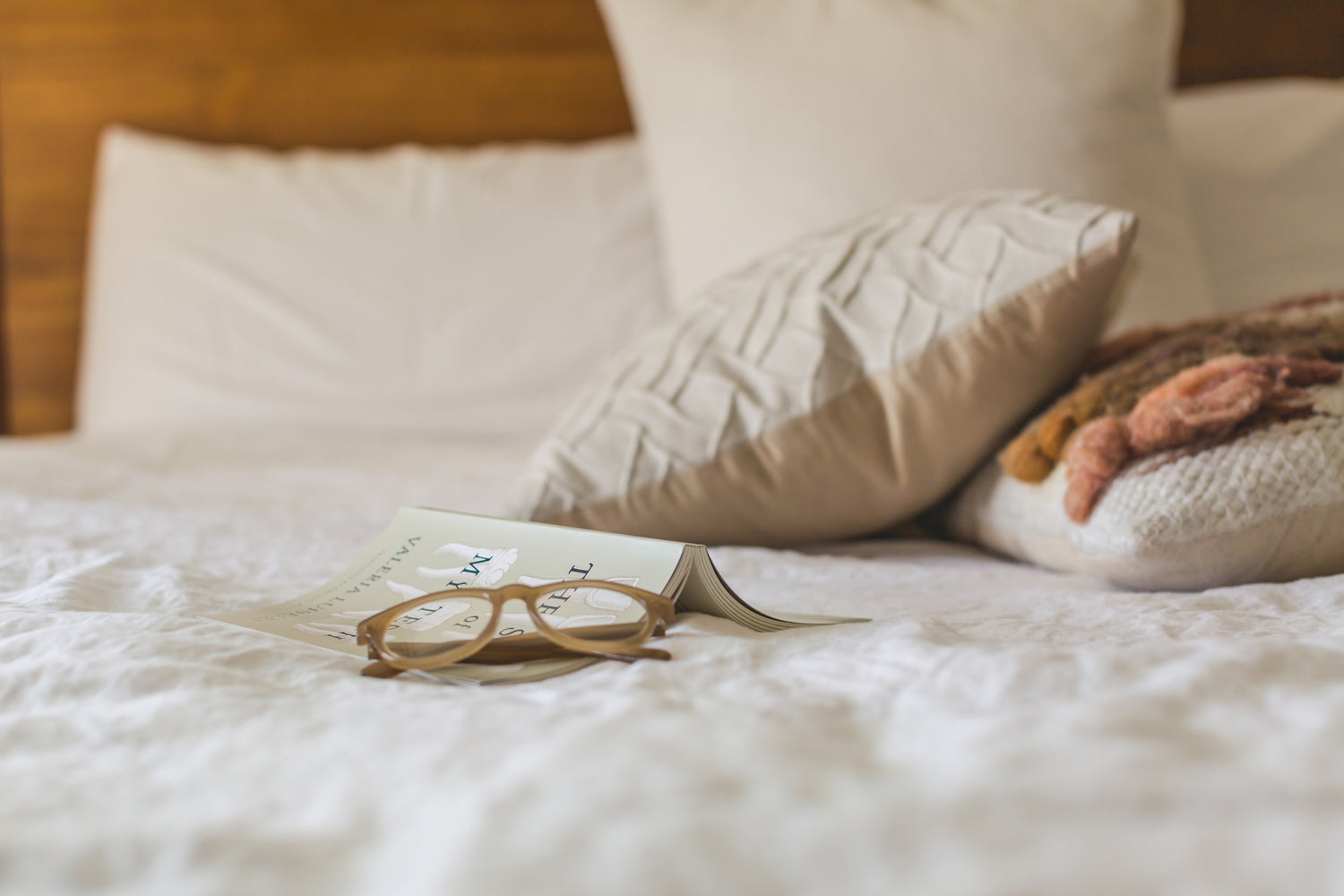
Create a Sleep-Friendly
Environment
Your bedroom should be a calm, quiet, and comfortable space dedicated to sleep. Start by keeping the room cool—around 16–19°C is ideal for most people. Use blackout curtains to block light, and consider a white noise machine to mask disruptive sounds.
A good-quality mattress and supportive pillow are also essential for proper rest. Remove clutter and avoid using your bedroom for work or stressful tasks. Making your sleep environment peaceful and inviting tells your brain that it’s time to relax, helping you fall asleep faster and stay asleep longer.

Exercise
Regularly
Physical activity helps regulate your sleep-wake cycle and can lead to deeper, more restful sleep. Aim for at least 30 minutes of moderate exercise most days—such as walking, yoga, or swimming. Morning or early afternoon is ideal, as intense exercise too close to bedtime may have a stimulating effect.
Exercise helps reduce stress, balance hormones, and tire the body out in a healthy way. Even gentle movement can support better sleep over time, improving how quickly you fall asleep and how refreshed you feel in the morning.
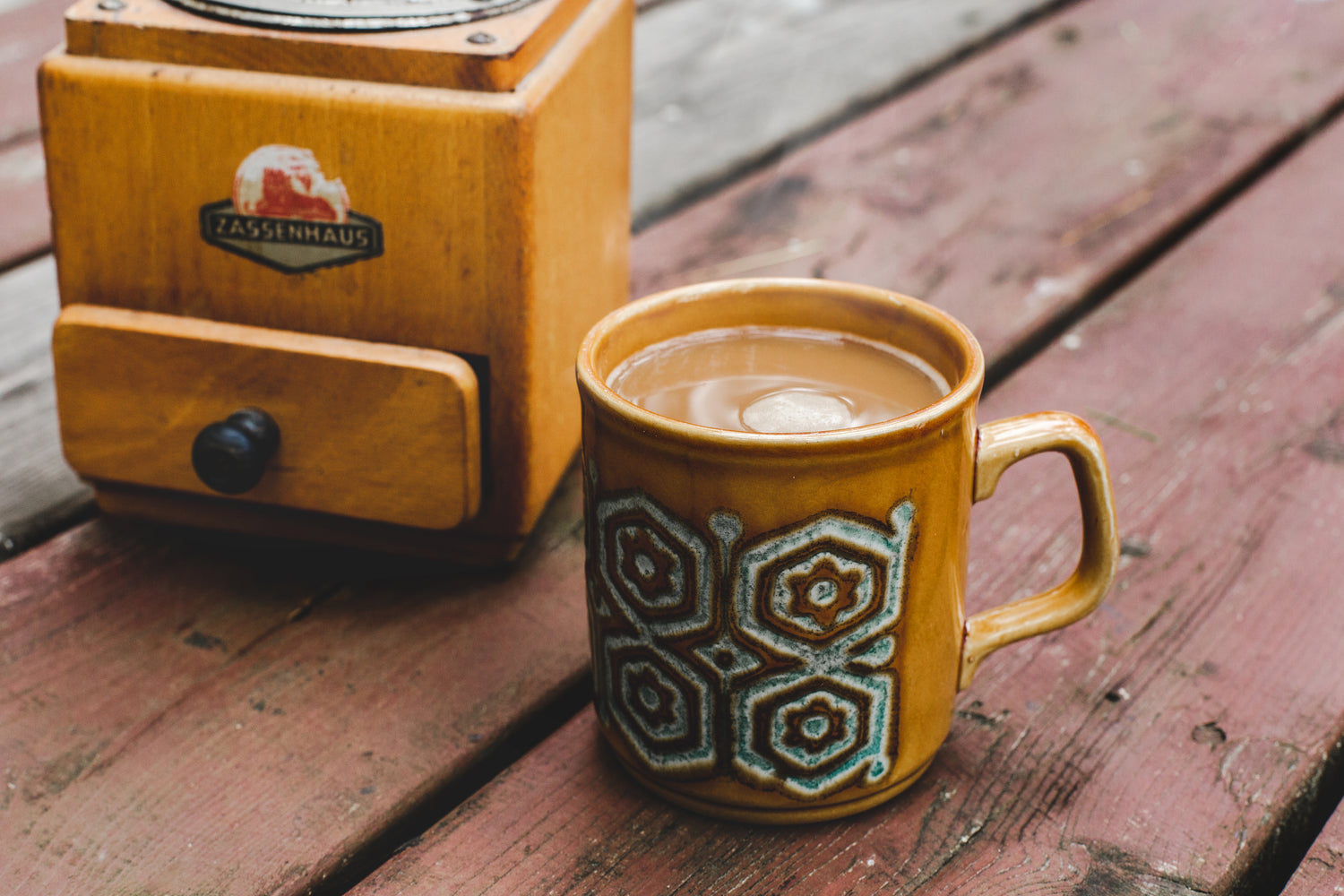
Avoid Caffeine
In the Evening
Caffeine is a stimulant that can stay in your system for several hours, making it harder to fall asleep or causing fragmented rest. Try to avoid coffee, energy drinks, and even dark chocolate after 2–3 p.m.
Similarly, while alcohol might initially make you feel sleepy, it disrupts REM sleep and often leads to waking in the middle of the night. Opt for herbal teas like chamomile or lemon balm in the evening. Being mindful of what you consume later in the day can have a major impact on sleep quality and next-day energy levels.
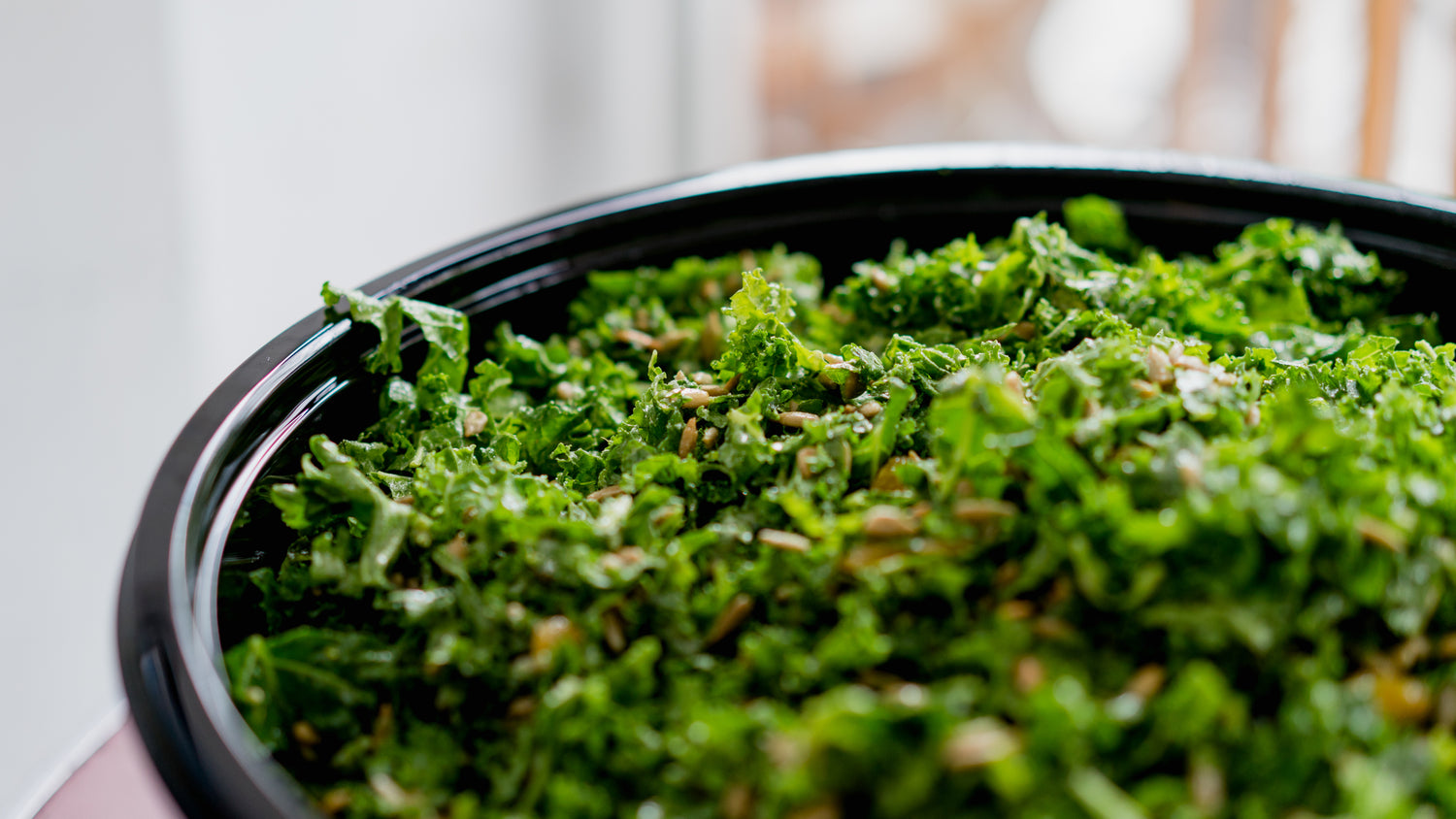
Follow A Sleep-Friendly
Diet
What you eat can influence how well you sleep. A balanced diet rich in whole foods, fiber, and healthy fats supports better rest. Foods high in tryptophan—such as turkey, oats, nuts, and seeds—help the body produce serotonin and melatonin.
Magnesium-rich foods like leafy greens and bananas can also promote relaxation. Avoid large meals, heavy spices, or excessive sugar close to bedtime, as they can cause digestive discomfort or blood sugar fluctuations. Eating light, nourishing meals in the evening helps your body wind down naturally and sleep more soundly.

Practice
Relaxation Techniques
Relaxation practices like deep breathing, meditation, progressive muscle relaxation, and gentle stretching can help calm the nervous system before bed. These techniques reduce stress hormones and signal to your body that it’s safe to rest. Even five to ten minutes of focused breathing or mindfulness meditation can shift your body into a more relaxed state. Try using guided apps, soft music, or a warm bath to help ease tension. Practicing relaxation each evening creates a mental and physical buffer between the demands of the day and restful sleep.
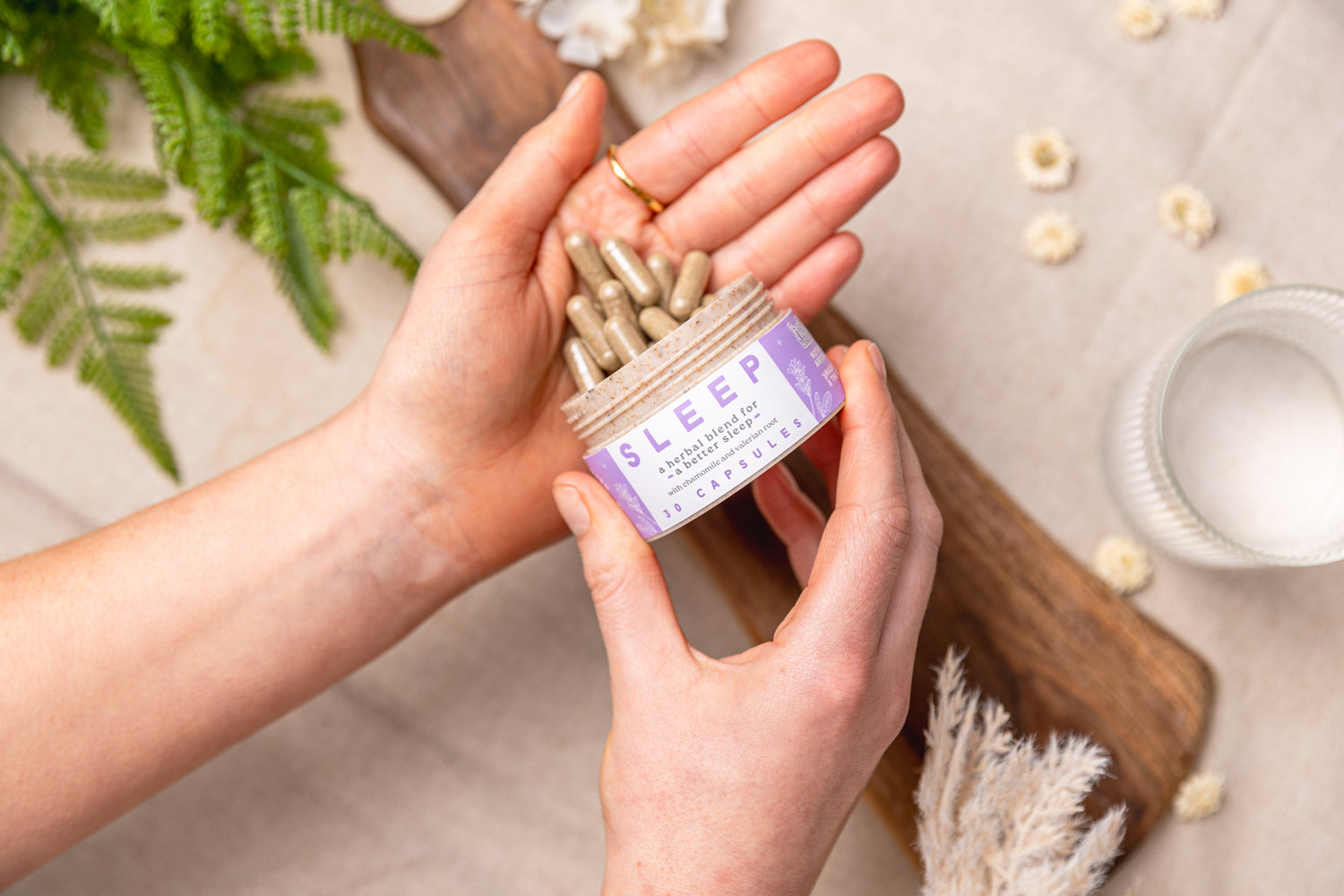
Herbal
Remedies
Herbal remedies have been used for centuries to promote calm and improve sleep naturally. Chamomile is one of the most well-known herbs for relaxation, with gentle sedative effects that help reduce anxiety and support restful sleep.
Valerian root is more potent and works by increasing GABA levels in the brain, which encourages deep, uninterrupted sleep—especially helpful for those who struggle with falling asleep. Oat straw, though less known, nourishes the nervous system over time and is ideal for combating the effects of long-term stress and fatigue. Taken as teas, tinctures, or capsules, these herbs work synergistically to relax the mind and body without the grogginess of pharmaceutical sleep aids.
Other Natural Ways to Combat Brain Fog
Keep a Sleep Diary
Tracking your sleep patterns, habits, and how you feel each day can help identify hidden factors affecting your rest—like late meals, stress triggers, or inconsistent bedtimes.
Limit Naps
While short naps can be helpful, sleeping too long or too late in the day may interfere with nighttime rest. Aim for 20–30 minutes, ideally before 3 p.m.
Get Natural Morning Light
Exposure to natural light early in the day helps regulate your internal clock, making it easier to feel alert during the day and sleepy at night.
Use Aromatherapy
Essential oils like lavender, bergamot, or cedarwood can promote relaxation. Try diffusing them before bed or adding a few drops to your pillow or bath.
Try Guided Meditations
Apps and audio tracks that use calming voices, breathing cues, or gentle music can help quiet a racing mind and prepare the body for rest.
Reduce Noise Disruptions
Use earplugs or white noise machines to block out distracting sounds. A quiet environment is key to maintaining deep, uninterrupted sleep.
Avoid Late Night Stimulating Activities
Intense conversations, work emails, or high-energy TV shows can overstimulate the brain. Aim to wind down with calm, screen-free activities instead.
Keep Your Bedroom for Sleep Only
Train your brain to associate the bedroom with rest—not work, phones, or stress—by keeping non-sleep activities out of the space.
Blog Posts About Poor Sleep
-

Why Do We Sleep? Why Sleep Matters for Your Health
Why Do We Sleep?Sleep problems such as insomnia, difficulty staying asleep, and frequent night waking are struggles that many people face. In fact, 36% of adults struggle with sleep at least once a week!
-
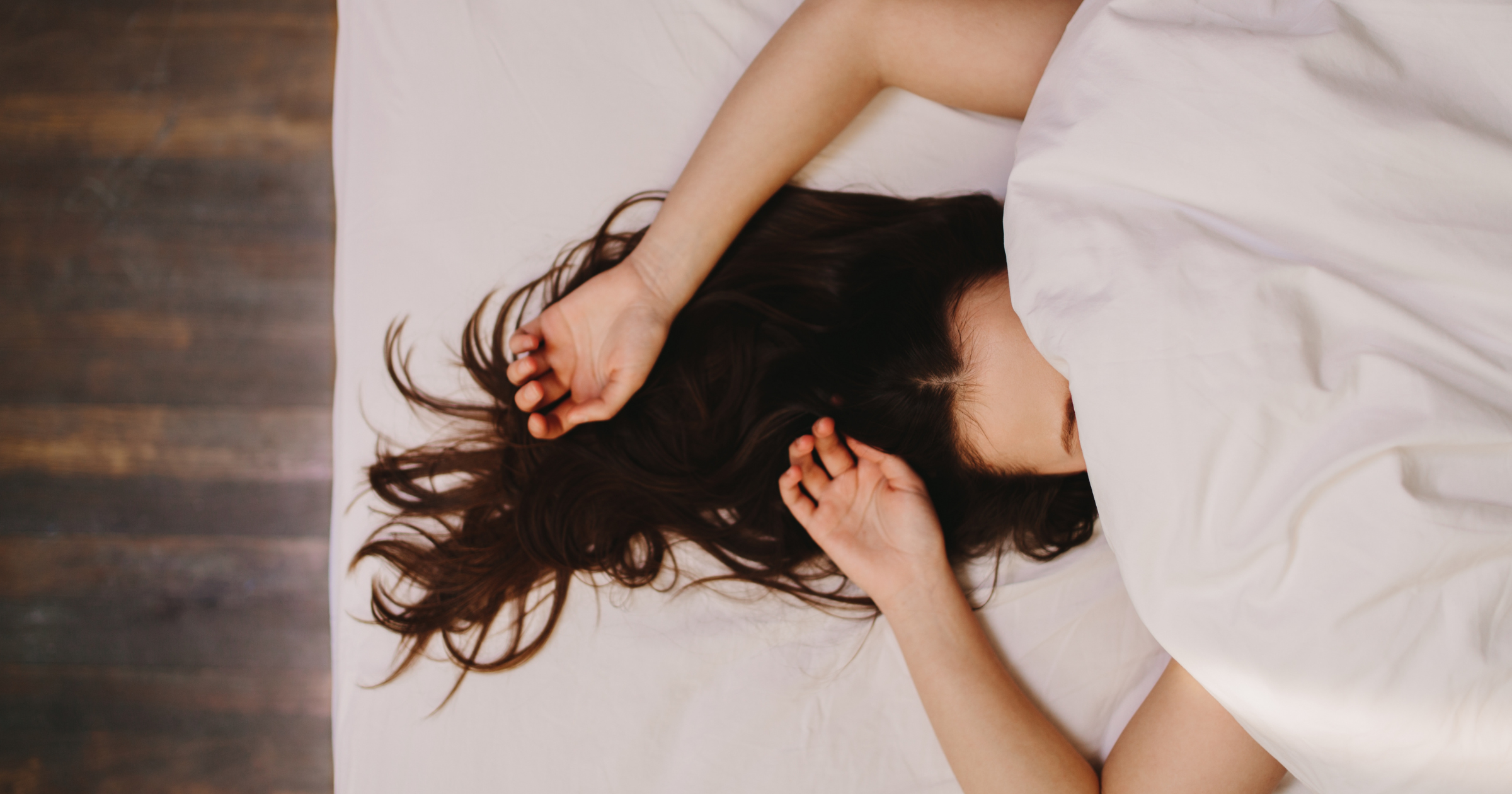
Easy Home Sleep Deprivation Test
Sleep Deprivation TestThere’s a really simple home test to see if you’re getting enough. If you want, you can also watch the reel I made which shows you a handy visual of exactly what to do!
-

March Practitioner Action Plan - Improve Your Sleep With Expert Tips
Expert Sleep TipsA healthy sleep routine is one of the most powerful ways to enhance well-being. By focusing on good sleep hygiene, relaxation techniques, and herbal remedies, you can improve sleep quality naturally.
Discover Hello Sleep
Poor Sleep FAQ
What is poor sleep?
Poor sleep refers to difficulty falling asleep, staying asleep, or waking up too early and not feeling refreshed. It may also include restless sleep or feeling tired during the day despite spending enough time in bed.
What are the most common causes of poor sleep?
Common causes include stress, anxiety, irregular sleep schedules, screen time before bed, caffeine or alcohol use, poor sleep environments, hormonal changes, and certain medical conditions or medications.
How much sleep do I really need?
Most adults need 7–9 hours of quality sleep each night. However, individual needs may vary slightly. If you consistently wake up tired or feel drowsy during the day, you may not be getting enough restorative sleep.
How does poor sleep affect my health?
Chronic sleep deprivation can lead to fatigue, mood swings, weakened immunity, difficulty concentrating, and increased risk of anxiety, depression, obesity, heart disease, and diabetes.
Are naps good or bad for sleep?
Short naps (20–30 minutes) can boost energy and focus. However, long or late-afternoon naps may interfere with nighttime sleep. If you nap regularly and still feel tired, it may signal a sleep disorder or underlying issue.
What are some natural ways to improve sleep?
Natural remedies include keeping a consistent sleep schedule, creating a calming bedtime routine, exercising regularly, avoiding screens before bed, and using herbal teas or supplements like chamomile, valerian, or oat straw.
Can diet affect sleep?
Yes. Heavy meals, caffeine, sugar, and alcohol—especially late in the day—can disrupt sleep. A balanced diet rich in magnesium, tryptophan, and B vitamins supports healthy sleep patterns.
When should I seek professional help for poor sleep?
If sleep problems persist for more than a few weeks, or if they interfere with daily functioning, it’s important to speak with a healthcare provider. Sleep disorders like insomnia or sleep apnea may require diagnosis and treatment.
Do natural sleep aids really work?
Many people find relief with herbal remedies and lifestyle changes. Ingredients like valerian root, chamomile, and oat straw can help relax the nervous system and promote restful sleep. Always consult your doctor before starting supplements, especially if you’re taking medication.

Feel well rested with Hello Sleep
If you’re tired of feeling tired, it's time to take control of your sleep cycle. Simple lifestyle changes, the right diet, and natural supplements can help improve your sleep cycle, giving you more energy and focus and helping you feel refreshed.
At Hello Wellness, we believe in the power of nature to support healthy sleep cycles.
Hello Sleep is our natural sleep-aid formula. It's an expertly crafted herbal supplement designed to help you drift off and sleep soundly, all night long.
Start your journey toward better sleep today.
Hello Wellness UK
Hello Sleep
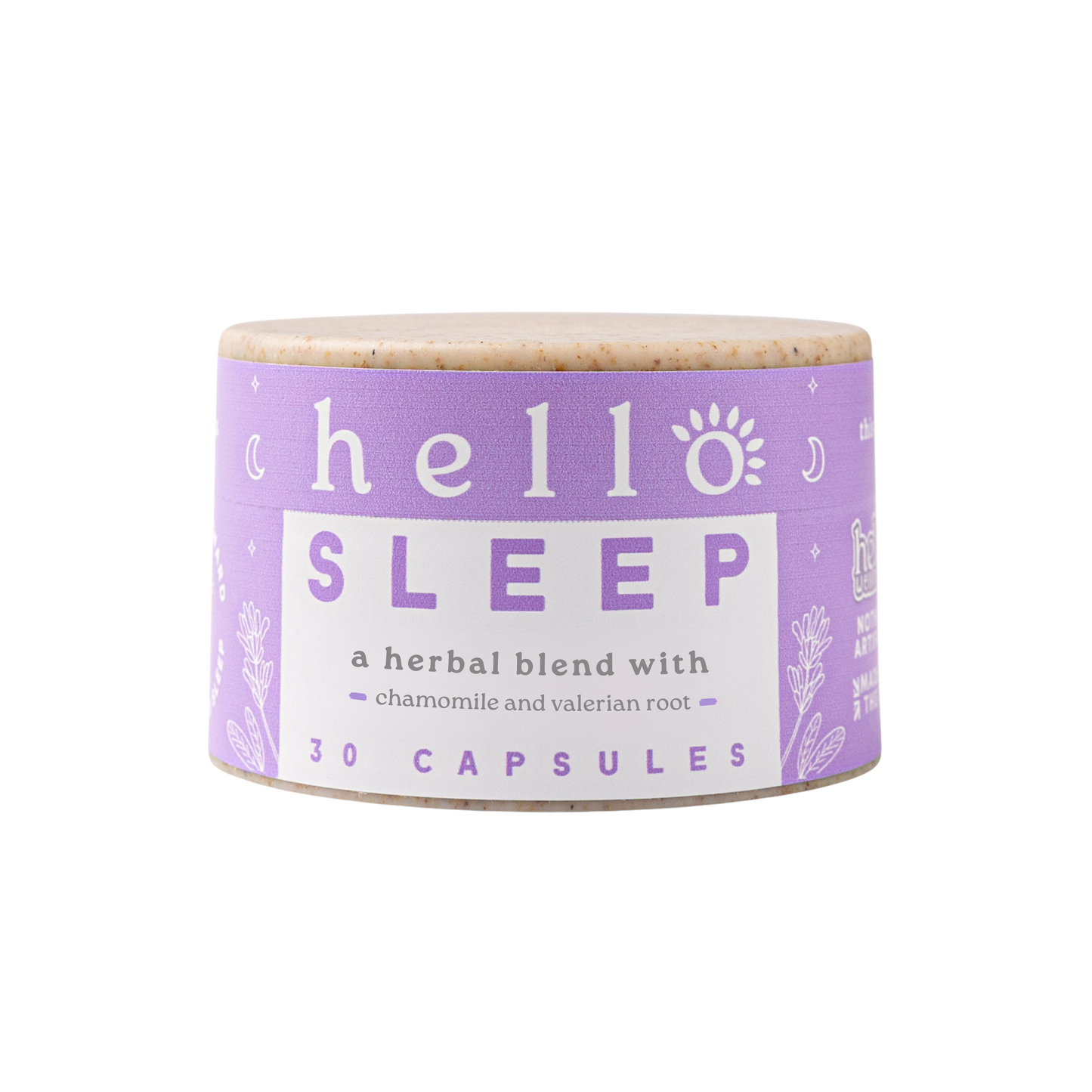
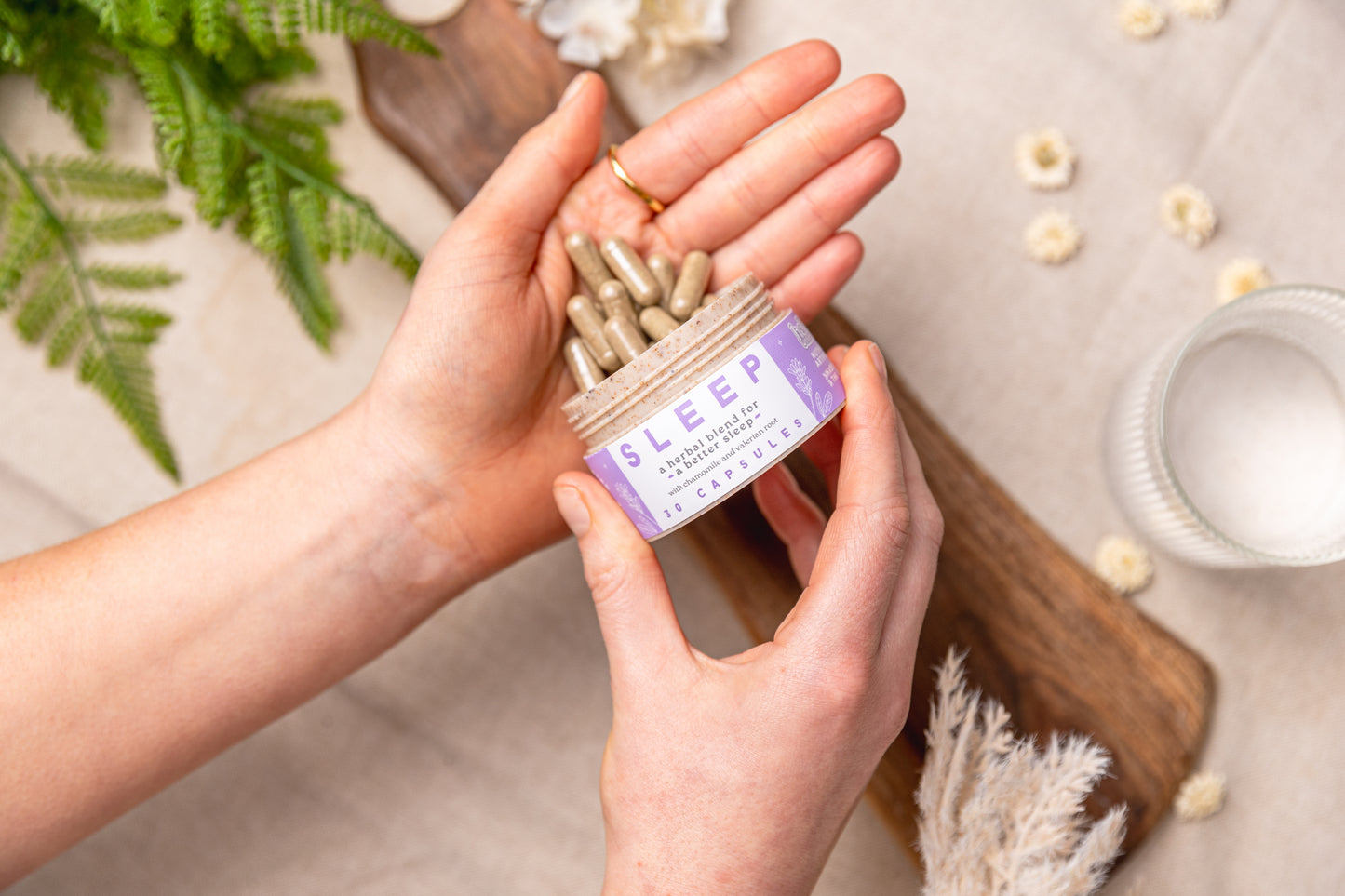

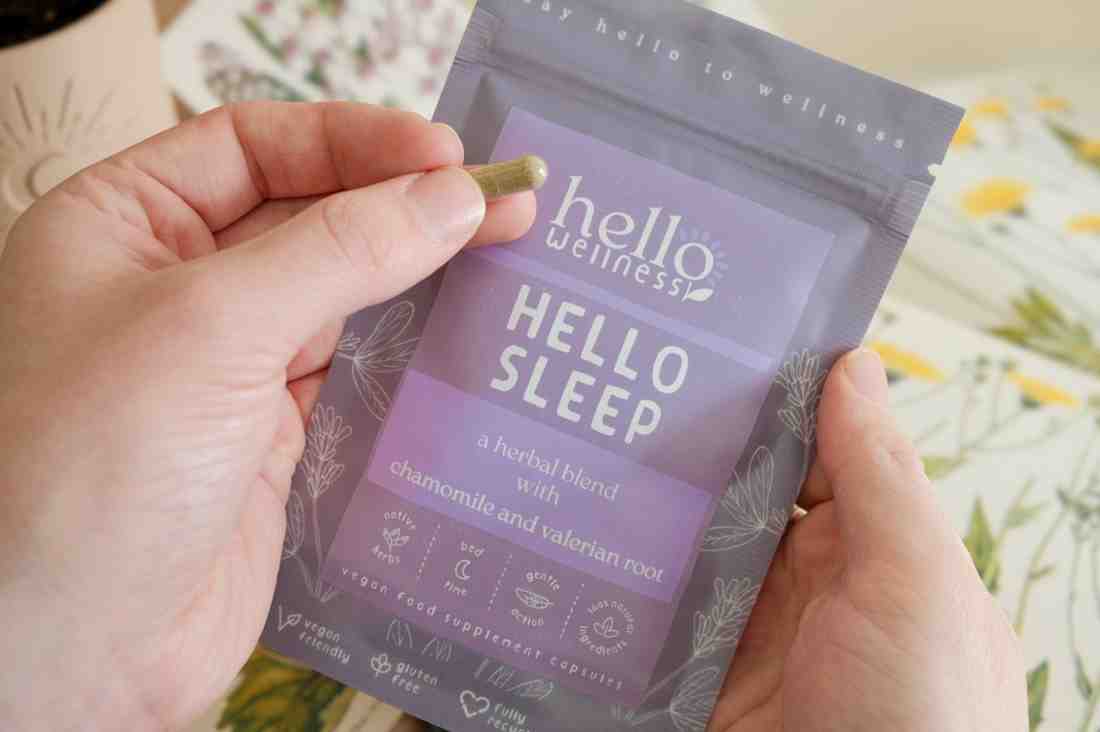
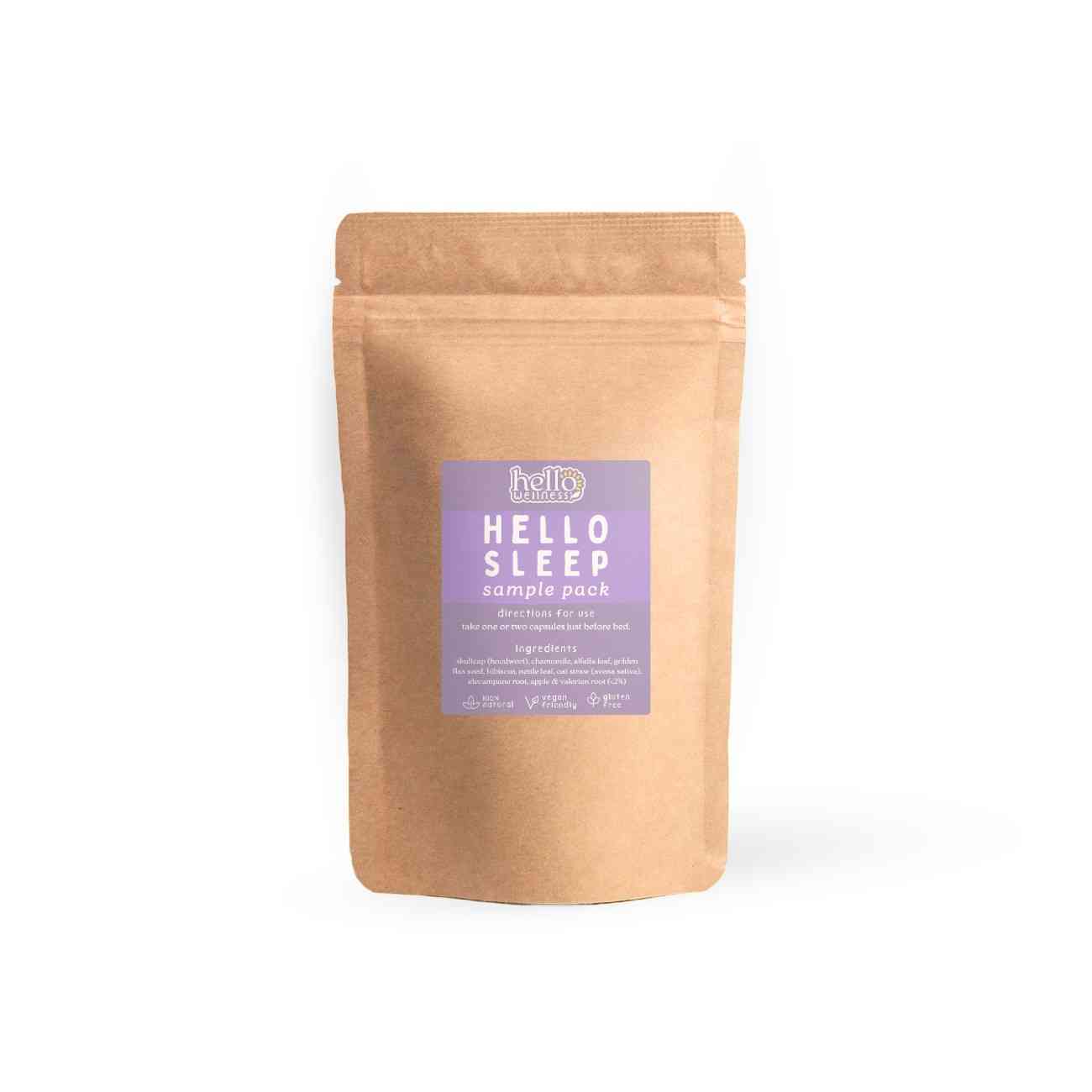
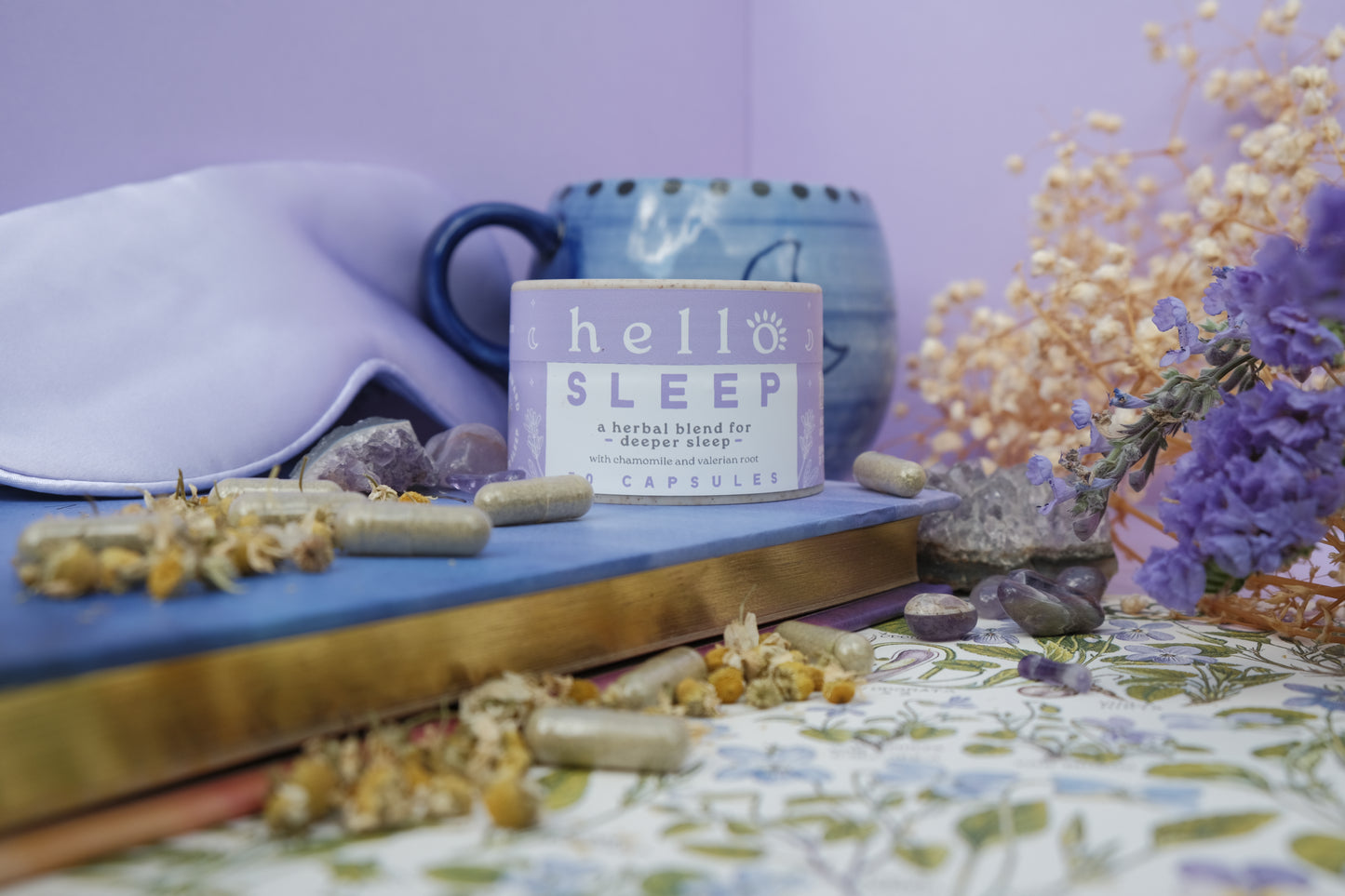
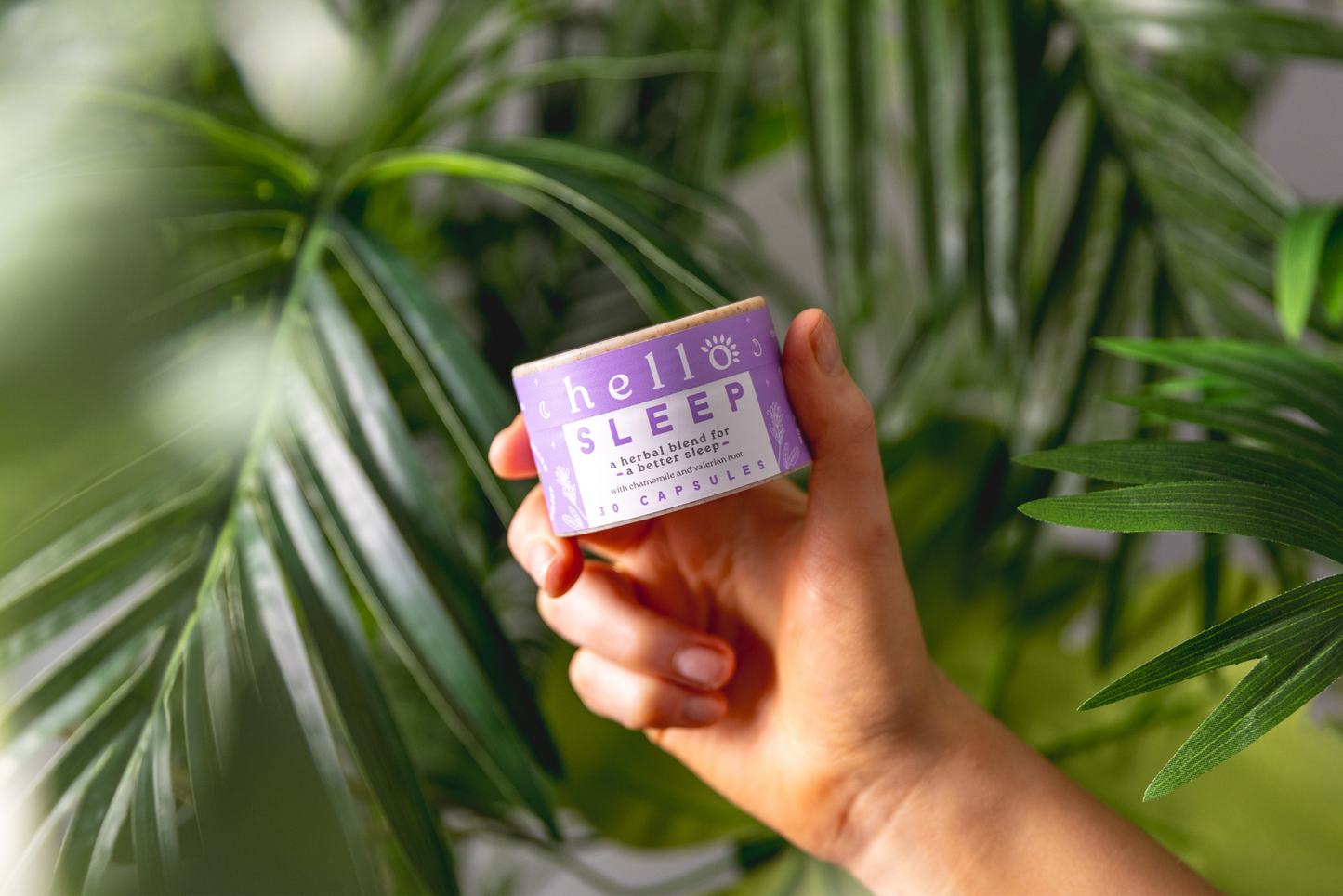
-

100% Natural Ingredients.
No artificial chemicals, no fillers, just herbs native to the UK.
-

Naturopathically Formulated.
Unique combinations of active ingredients and adaptogens refined throughout our natural health practitioner & founder’s 25 years of experience.
-

For Everyone.
Everybody and every body is different. Our active ingredient and adaptogen-filled formulations listen to deliver what it needs, when it needs it.
-

For the Planet.
Choosing Hello Wellness is choosing sustainably-sourced UK native herb varieties, and award-winning biodegradable pots.






